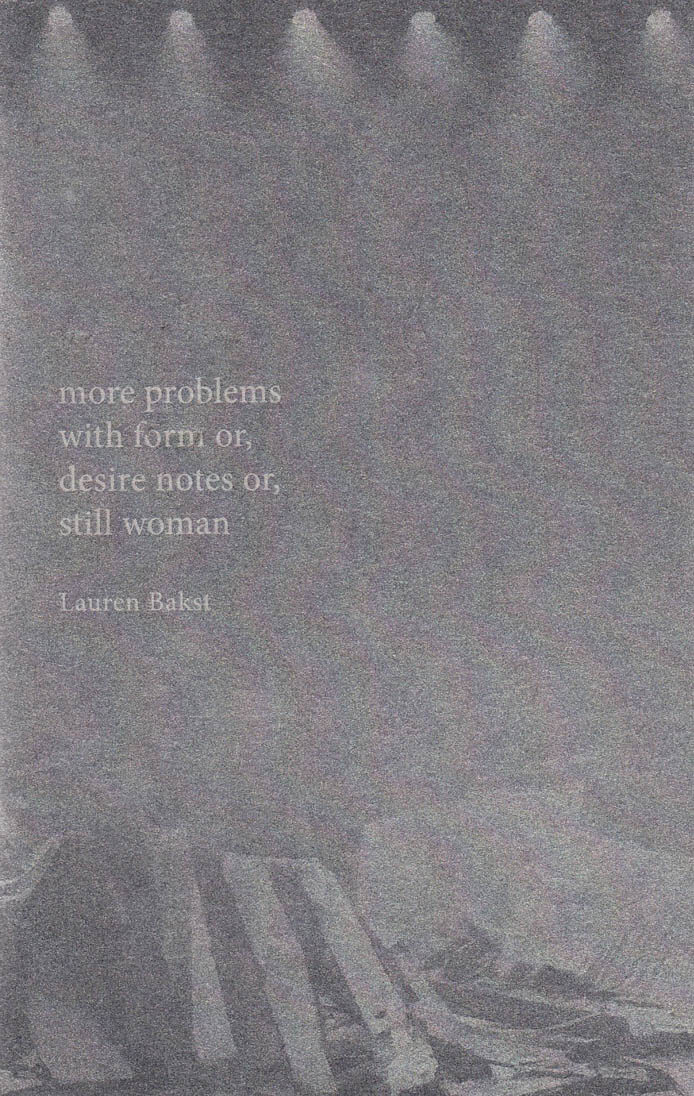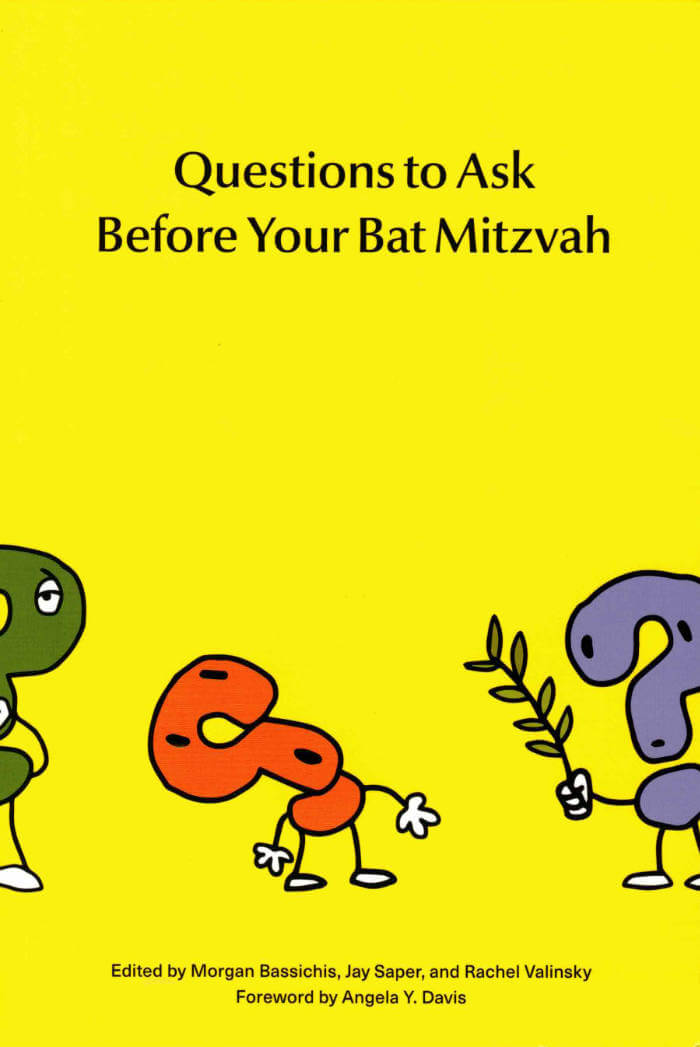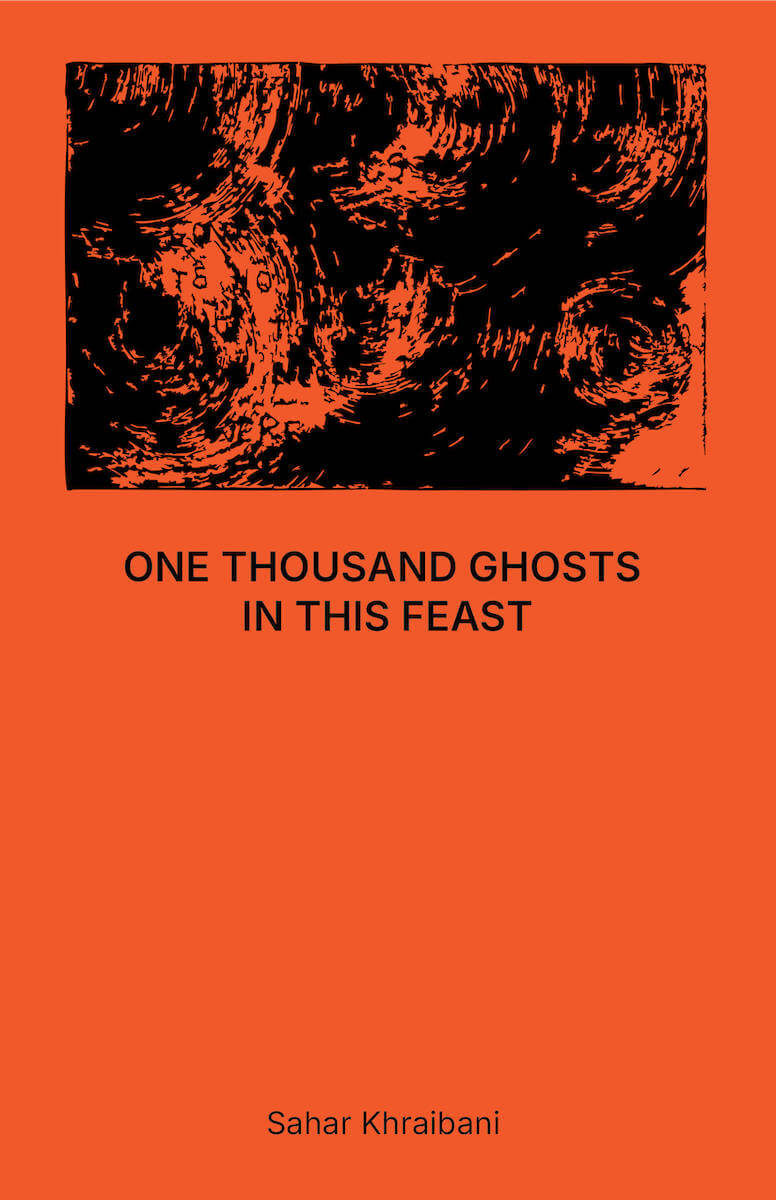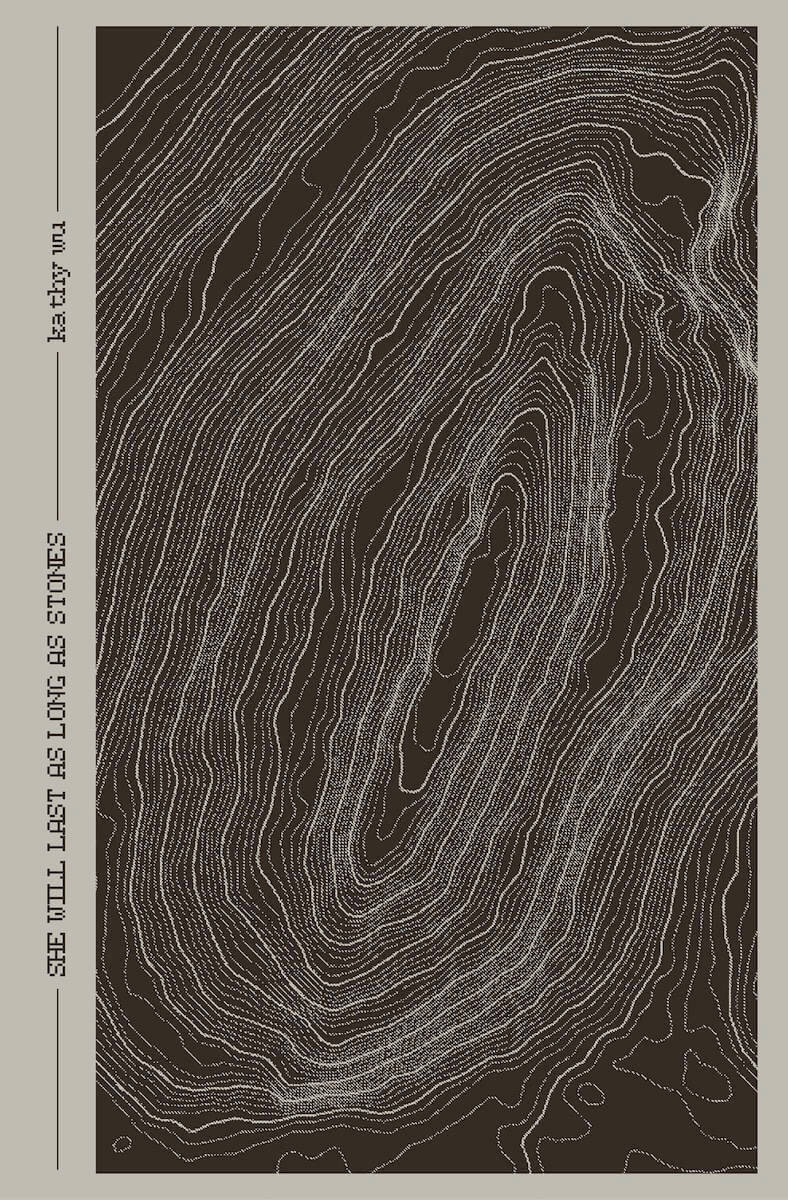Weaving together the matter of geology, migration, and computation, kathy wu’s debut book She Will Last as Long as Stones mines data from the United States Geological Survey, pairing it with (mis)translations of conversations with the author’s mother, narratives of racialized and gendered labor, and elegies on end-of-life care. Through text, photo-collage, and diagrammatic circuitry, wu mobilizes language toward the edges of things, where glitch and failure meet grief, outpour.
kathy wu's She Will Last as Long as Stones is the 2024 Open Reading Period Book Prize winner, and was selected by guest judge Bhanu Kapil.
kathy wu is a Chinese–American artist, poet, and designer living in Providence, Rhode Island, on Narragansett land. She works across digital media, fiber, book arts, and language to pull at histories of science and technology. Her work has appeared via The New School, Dialogist, Rain Taxi, NatBrut, and Tilted House, and has been anthologized by Fonograf Editions and Nightboat Books. She has been awarded fine arts residencies at Blue Mountain Center, Black Mountain College Museum, and Pao Arts Center. She currently teaches full-time at Rhode Island School of Design (RISD), and holds an MFA from Brown University’s Literary Arts program.
She Will Last as Long as Stones has the inter-genre brilliance of asking where materials originate, and following that question until writing becomes a kind of listening with stone, with metal, for magnetic reverberations, for the thinking at the back of the cave.
— Bhanu Kapil
There just might be currents coursing through landscape, language, software, and labor—presences that escape extraction and will not be denied. She Will Last as Long as Stones looks into the multiple temporalities and operations of many things: material place, mining, social and scientific documentation, computation, migrant women's work, and mother-daughter relations, constellating them into a poetics of wondrous design and resonant beauty.
— Kimberly Alidio
She Will Last as Long as Stones is a subtle circuit that conducts a charge but (paradoxically) remains open. wu's intricate parataxis offers readers fertile resistance, while simultaneously leading us to grounded revelations about the intertwined materialities of technology, language, and memory.
— Allison Parrish








